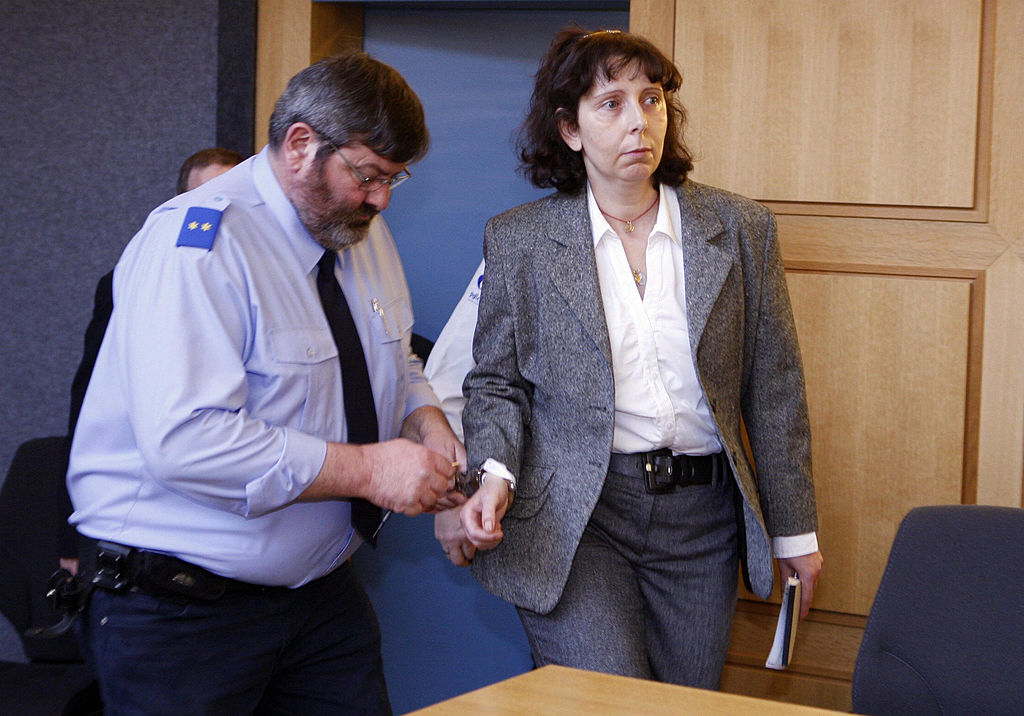Those who back assisted dying/euthanasia/assisted suicide – and no doubt Prue Leith on her nationwide tour will be returning to her differences on this one with her MP son, Danny Kruger – have rarely suggested that it might usefully serve as a backdoor return to capital punishment. This, however, seems now to be the case in Belgium.
Genevieve Lhermitte who murdered her five children – a son and four daughters – in 2007 has been killed by doctors at her own request. It was the conclusion to the tragedy that she originally intended. She had tried to take her own life after the murders, unsuccessfully, and was first convicted for life imprisonment in 2008 and later consigned to a psychiatric hospital in 2019.
No doubt the life of this contemporary Medea was a living hell with the image of her children constantly before her. If ever a crime carried its own punishment, it’s this. But although she can be assumed to have been suffering the torments of guilt, she can hardly be said to qualify for euthanasia in the terms that British proponents of euthanasia favour. It is, in effect, capital punishment on demand.
Under Belgian law, people can choose to be euthanised if they are considered to be suffering ‘unbearable’ and incurable psychological or physical suffering. The candidate must be conscious of their decision and able to express their request in a reasoned and consistent manner. Mrs Lhermitte fulfilled all the criteria, and had the approval of doctors.
Last year in Belgium almost 3,000 people were euthanised, an increase of 10 per cent over 2021. Cancer was the most common reason but we may note that in nearly three out of four cases the patient suffered from more than one kind of suffering, psychological as well as physical. In other words, if you are depressed, it seems you can, if you are persistent, get doctors to kill you.
As for the consent bit, we might also note that Belgian children can be killed if they are terminally ill and in great pain, and if there is parental consent. Is it really necessary to spell out the recent cases here that suggest that parents are not always the guardians of their children’s best interests, that sometimes they are callous, self-interested and cruel?
Whatever, the point is that euthanasia is always liberalised within a relatively short time after its introduction. As I have written here before, the laws in the countries that introduce it are usually tightly framed, but in a matter of a few years, it’s not so much a slippery slope as a black run towards the expansion of the law in a way no one signed up for.
I was listening a couple of weeks ago to the proceedings of a committee convened in the Commons by the excellent Danny Kruger, see above, on the operation of the assisted dying legislation in Canada.
And what Canadian disability rights campaigners made clear in person and on Zoom was that it’s easier right now in Canada to get euthanasia than decent palliative and social care. One campaigner illustrated her talk with a cartoon of a ramp ascending easily to the euthanasia clinic and a set of steps going up to the social care unit; which is the wheelchair user going to use, then?
The countries that preside over a system that allows children, the depressed, the disabled and now convicted criminals to be killed at their or their parents’ request, are all, without exception, decent, liberal democracies. Nearly always, the euthanasia law was originally tightly framed; in almost all cases the law now covers people that would never have been envisaged at the outset.
The moral is pretty obvious. Britain has a brilliant hospice system – it was a leader in the field – where people can get the pain relief and care to die with dignity in their own homes or in a hospice; no medic is prosecuted for using as much pain relief as is necessary for the patient’s comfort even if this results in premature death.
But palliative care is expensive; euthanasia is cheap. And now, it seems, assisted suicide can relieve the state of the trouble and expense of life imprisonment for murderers. I can see that might have a certain appeal.







Comments